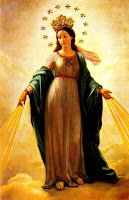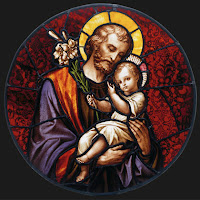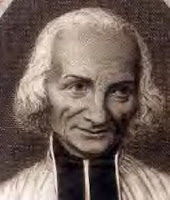 I am disappointed with the way we treat the Christmas Octave. Churches are filled with people for the 9-day Simbang Gabi. There is a heavy turnout of parishioners, servers, musicians, lectors, and other ministers. Even in the Extraordinary form of the Roman Rite, servers and choir members are excited over the Rorate Masses. So many candles were lit and so much incense was burned to make the days of the Rorate more solemn.
I am disappointed with the way we treat the Christmas Octave. Churches are filled with people for the 9-day Simbang Gabi. There is a heavy turnout of parishioners, servers, musicians, lectors, and other ministers. Even in the Extraordinary form of the Roman Rite, servers and choir members are excited over the Rorate Masses. So many candles were lit and so much incense was burned to make the days of the Rorate more solemn.
But after the Midnight Mass, everything changes. On the morning itself of Christmas day, the churches are almost empty. Maybe, it is because people have fulfilled their Christmas obligation with the Midnight Mass that they saw it unnecessary to return for Church on Christmas day. However, it becomes more disappointing beginning the Feast of St. Stephen. There, we begin to see less and less people coming to Mass. Lectors and other ministers do not report for duty. Servers were limited to the minimum (1). Even the Sacristan did not see it necessary to light all the 6 candles on the Altar nor to light the Christmas Lanterns in and outside of the Church. The Choir and Cantors are nowhere to be found. And I am not referring only to the Ordinary Form of the Roman Rite. This year, I committed myself to a daily offering of the Mass in the Extraordinary Form of the Roman Rite throughout the octave and also until Epiphany. I was dismayed by how the octave of Christmas is being treated.
There is something wrong with our liturgical culture. So many assist Mass during the last 9 days of Advent but almost nobody will be there during the Octave. Isn't the Octave the extension of Christmas day? I recall our studies on the Liturgical Year. We were taught that the celebration of the Octave is due to the fact that the Divine Mystery commemorated on Christmas (or Easter) day is so rich that one day is not enough to celebrate it. And so the celebration is extended to 8 days. The 8 days are considered as only 1 day. Thus, the Gloria and the Creed are sung as on the day of Christmas (or Easter). And so everyday of the Octave is Christmas day (or Easter Sunday).
If this were so, why do we treat the Octave days so very badly? Have the Simbang Gabi exhausted us so much that we find it reason enough to stay at home and sleep throughout the Octave? It is as if were have been very busy preparing for the Fiesta and so we disappear and sleep off the actual festivity itself. And allow me to remind you that Advent, the Simbang Gabi, the Rorate Masses are but preparations. YES, ONLY PREPARATIONS!!!!! The Christmas (or Easter) Octave is the REAL CELEBRATION.
We have allowed the commercialism of the secular Christmas to creep into the sacred liturgy itself. We have anticipated Christmas in Advent that there seem to be nothing else to celebrate when the real Christmas came. Where are the servers? Where are the cantors? Where are the lectors? Where are the other ministers? (Where are the priests?) If only our Lord could speak directly to us, he might say: "There were so many of you present during the preparations for my coming but when I can, everybody went out for their vacation."
Is this the way to treat the Octave days? If this were so, then I might take my vacation as well. This is no way the Octave should be treated. This is simply WRONG LITURGICAL CULTURE.









Thank you, Fr. Jojo for enlightening us with regard to the subject. By the way, I am Rio, a product of an all-boys catholic school from elementary to High school, and actively serving in our parish as EMHC. However, its a shame to admit (or maybe because of my ignorance) that I haven't encounter the topic on Christmas / Easter Octave in my religion classes or even during our formation in the lay ministry. I wish there would be more priest like you who would spend time educating us lay people with regards to similar church matters because these topics could only be appreciated and formally discussed in the seminary. Or better yet, if its not too burdensome for the clergy to include some lectures on these topics in their Homilies during Sunday Mass. Thank you.
ReplyDelete